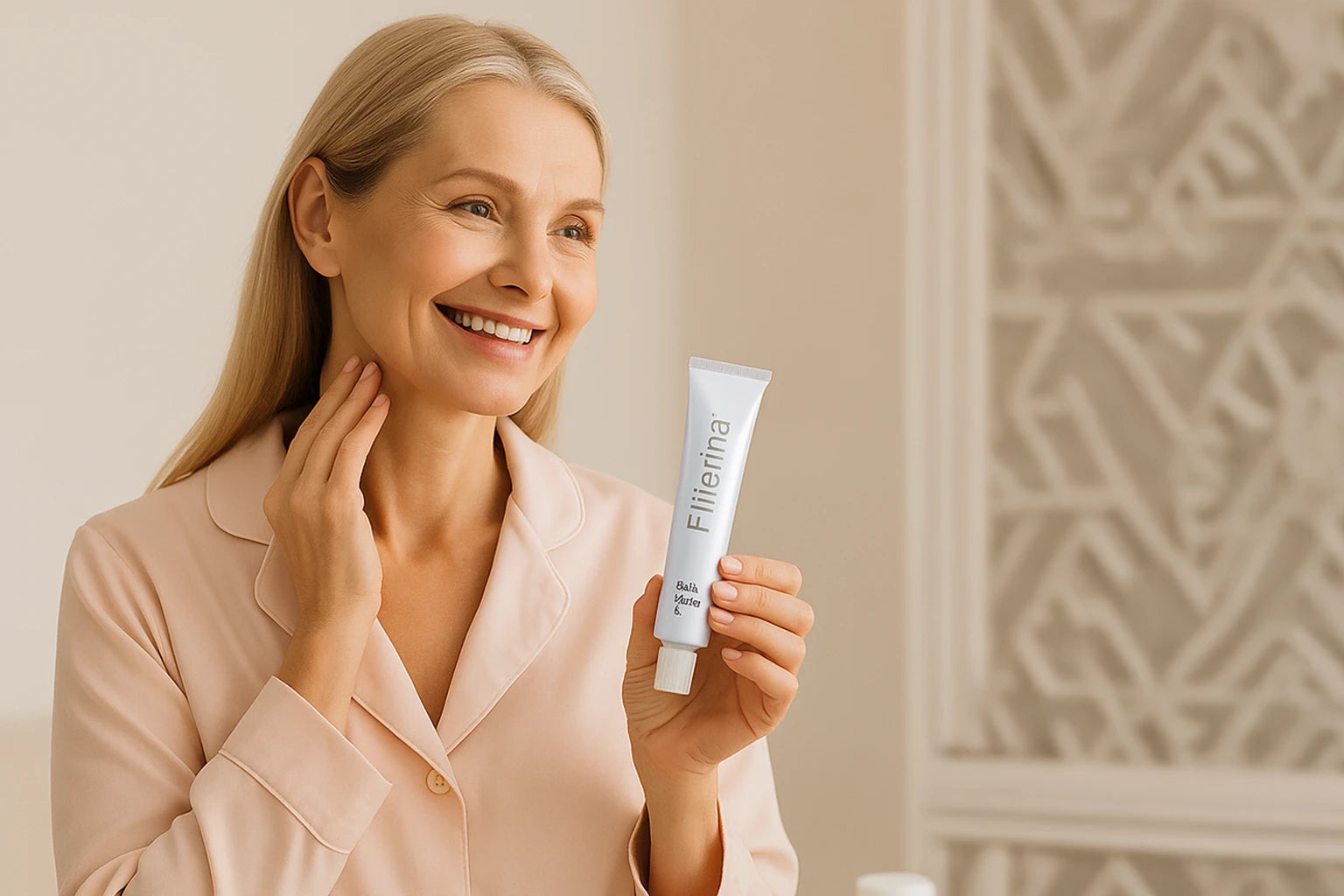Alfacort Cream: The ideal solution for skin inflammations
Content:
- How Inflammation Occurs?
- Common Causes of Inflammation
- What is Alfacort Cream?
- Uses of Alfacort Cream?
- How to Use Alfacort Cream?
- Frequently Asked Questions (FAQs)
- Top Tips to Prevent and Reduce Skin Inflammation
- Conclusion
Introduction:
Have you ever wondered why the skin becomes inflamed? Although inflammation can be annoying and may cause pain, redness, swelling, or even irritating itching, it is actually a natural defense response of the body. When the skin tissues are damaged due to an allergy, a bacterial or viral infection, or irritation from certain substances, the body triggers a defensive reaction to protect the affected tissues. In other words, inflammation is a signal from your body indicating that there is a problem that needs attention. In this article, we will explore the causes of skin inflammation and how Alphacort Cream helps relieve symptoms and effectively treat it.
How Inflammation Occurs:
Inflammation is the body's defense mechanism when it detects foreign substances that may cause harm. For example, suppose you spray perfume on your skin and later notice redness, itching, or a slight burning sensation. In that case, this happens because the skin treats the perfume ingredients as foreign, prompting the body to respond defensively. In another scenario, when the skin suffers a small cut and bacteria enter through it, the body perceives this as a threat to your health. It then sends immune cells to the affected area, leading to swelling, redness, and sometimes pain.
Common Causes of Inflammation:
-
Allergies: This occurs when perfumes or products unsuitable for your skin are applied, and the skin does not tolerate them. The skin sends defensive signals, resulting in redness, itching, or a burning sensation in the affected area. This type of inflammation usually appears quickly after exposure to irritants.
- Viral and Bacterial Infections: These occur as a result of cuts or scratches, which allow microorganisms to enter the skin and trigger an inflammatory response.
- Chemical Irritants: Substances such as chlorine or similar chemicals can cause skin irritation and inflammation.
- Dry Skin: Weakens the skin's protective barrier, leading to peeling, redness, and itching. Skin Conditions: Disorders such as eczema and psoriasis can lead to the development of inflammation.
What is Alfacort Cream?
Alfacort Cream is a topical cream that contains the active ingredient hydrocortisone. This is a topical medication, meaning it is applied directly to the skin and not taken orally. It is used to reduce inflammation associated with itching, swelling, and redness. When the body is exposed to foreign substances, it sends signals that trigger inflammation, leading to swelling and redness. By applying a cream containing hydrocortisone, such as Alfacort Cream, the active ingredient helps reduce the release of these inflammatory substances and enzymes, thereby helping to decrease inflammation. Hydrocortisone also works by constricting small blood vessels, which further helps reduce swelling and redness.
Uses of Alfacort Cream:
Alfacort Cream is used to treat inflammation associated with the following conditions: Dermatitis, Eczema, Psoriasis, and Insect bites
How to Use Alfacort Cream:
Alphacort Cream should be used according to your doctor's instructions. Generally, a thin layer of the cream is applied to the affected area 2 to 4 times daily until the inflammation subsides.
Warnings and Precautions:
- Consult your doctor before using Alfacort Cream during pregnancy or breastfeeding.
- Do not use Alfacort cream if you are allergic to hydrocortisone or similar substances.
- Inform your doctor about all medications you are taking and any existing health conditions before using the cream.
- The treatment period should not exceed 7 days.
- Alfacort cream should not be used by patients with bacterial, viral, or fungal infections, or by those with measles or chickenpox.
- Do not use it for prolonged periods or over large areas of the skin without interruption, especially on the face or under medical dressings.
- Do not use AlfacortCream on open wounds, ulcers, or cracks in the skin.
Frequently Asked Questions (FAQs)
Can Alfacort cream be used on the face?
No, it should not be used on the face without consulting a doctor.
Can it be used for children?
Yes, but only under a doctor's supervision.
What is the best way to store Alphacort Cream?
Store Alfacortr cream in a cool, dry place, away from children. Heat and humidity may damage the medication and reduce its effectiveness.
What are the possible side effects of Alfacort Cream?
- Dryness or thinning of the skin with prolonged use.
- Peeling, burning, or irritation of the skin.
- Appearance of tiny blood vessels on the skin.
Top Tips to Prevent and Reduce Skin Inflammation:
- Use gentle skincare products that are free of fragrances, parabens, alcohol, and harsh chemicals.
- Avoid skin dryness and keep your skin moisturized regularly with a suitable moisturizer. After washing or bathing, dry your skin gently without rubbing.
- Avoid irritants such as strong cleaning agents, including chlorine.
- Wear soft cotton clothing and avoid rough or low-quality fabrics that may irritate the skin. If you have eczema or psoriasis, follow your doctor's prescribed treatment and avoid scratching your skin.
- If you are allergic to certain foods, make sure to avoid them.
- Drink plenty of water throughout the day to keep your skin hydrated from within.
- Wear long clothing when in areas with insects to prevent bites and stings that can trigger inflammation.
- If bitten by an insect, avoid scratching the affected area to prevent further irritation or the spread of infection.
Conclusion:
Inflammation is a natural response of the body to protect tissues from damage. It can occur due to various factors, such as skin conditions like eczema and psoriasis, insect bites, dry skin, and other external triggers. Alfacort Cream is considered an effective treatment for inflammation, as it contains hydrocortisone. However, it should be used with caution and according to your doctor's instructions. If you have any further questions about Alfacort, do not hesitate to consult your healthcare provider.




